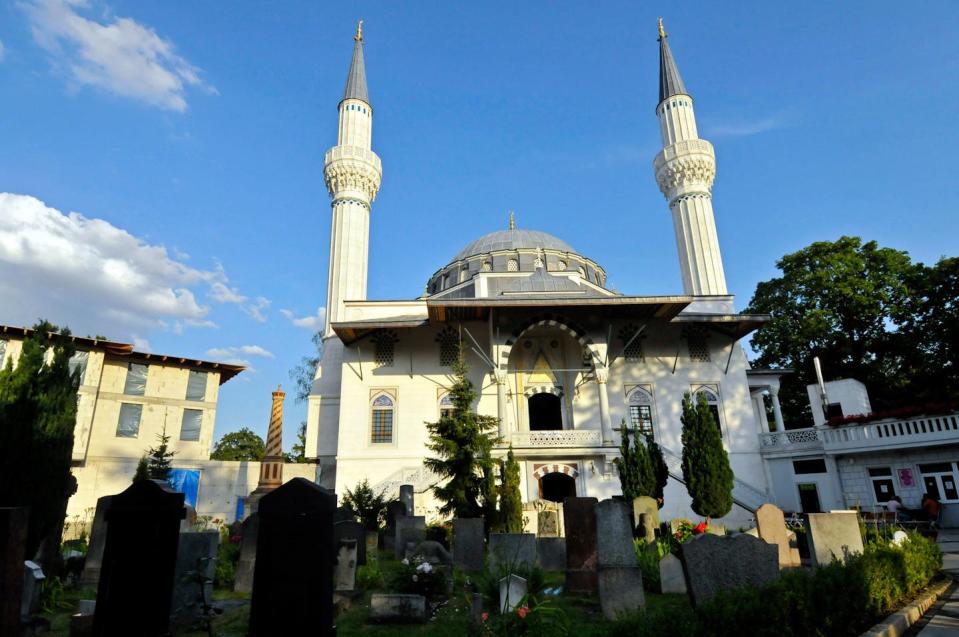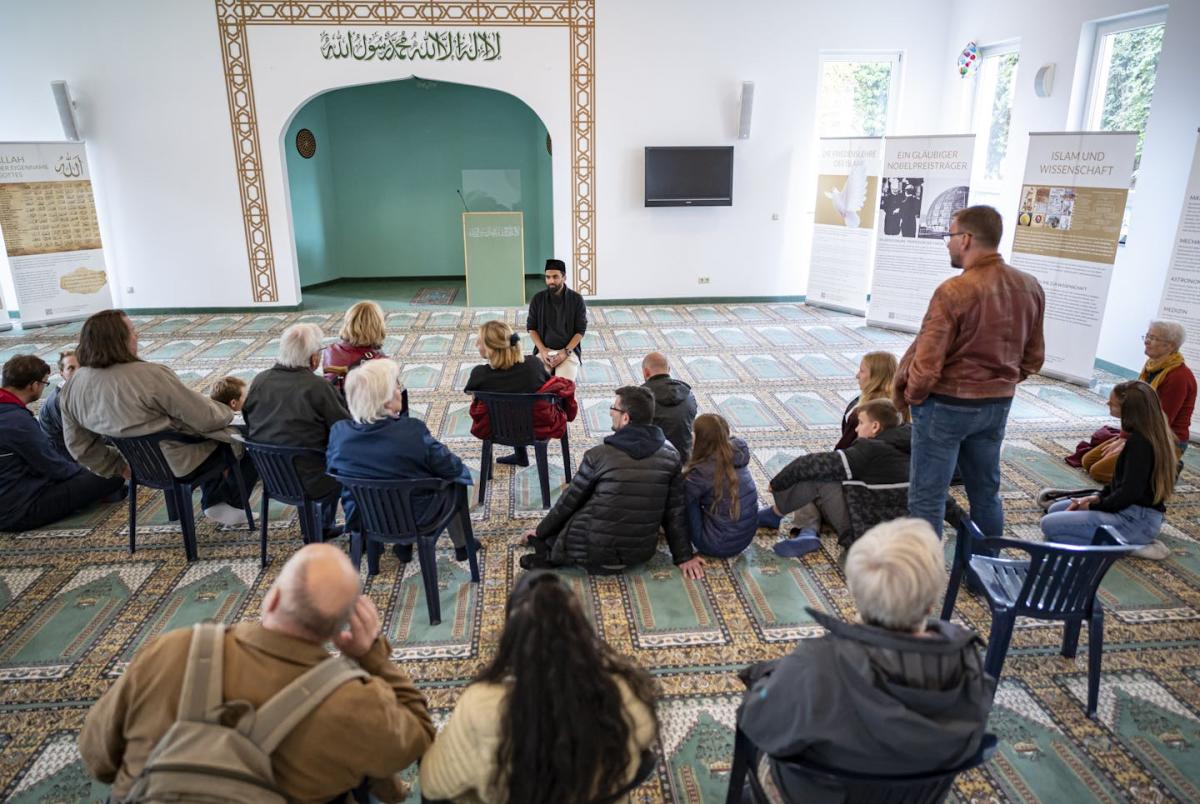Turkey will stop sending imams to German mosques – here’s why this matters
For decades, the Turkish government has sent imams to work in mosques across Germany. But the German Ministry of the Interior recently announced that it had reached an agreement with the Turkish government to put an end to the practice.
These imams, approximately 1,000 at present, are Turkish civil servants. Imams are sent to Germany on four- to six-year rotations, based on a long-standing agreement between the two governments. They work with Germany’s more than 2.8 million residents with Turkish citizenship or heritage.
The practice had come under intense criticism in Germany in recent years. German politicians have accused Turkish imams of spying on their flocks or abusing their positions to promote support for Turkey’s ruling Justice and Development Party.
The German government described plans to replace “imported imams” with imams trained in Germany as an “important milestone for integration.” On the other hand, some observers have questioned whether it will change anything for Germany’s 5 million Muslims.
As part of my ongoing research into the history of migration between Turkey and Germany, I have investigated the origins of this exchange and the goals both governments pursued by bringing Turkish imams to Germany.
Efforts by both states to intervene in the religious lives of Muslims by selecting which imams can preach in German mosques have a long history – although such efforts might not always achieve the goals of governments.
The ‘strategy’ of sending imams
A 1961 agreement led to Turkish “guest workers” being sent to Germany to meet the labor demands of its booming postwar economy. Many recruited workers and their families chose to settle permanently in Germany. By 1974, a year after labor recruitment ended, at least 1 million Turkish citizens were residing in Germany.
It was only in the 1980s that the Turkish government began sending cohorts of imams abroad, after it had become evident that a large Turkish population was in Germany to stay.
This step was motivated by several goals. One was to use state imams to create an alternative to Islamic groups active in Germany who opposed the secular Turkish state. Another was to use imams to foster continued ties to Turkey among the Turkish diaspora in Germany, encouraging them to continue to invest in Turkey.
In the 1980s, conservative governments made increasing use of Islam to encourage national unity in Turkey by, for example, mandating religious education in schools and revising curricula to emphasize Turkey’s Islamic heritage. Sending imams abroad was an example of this strategy being exported to Turkey’s overseas diaspora.
Only Turkish imams for Germany

In the early 1980s, German authorities, like their Turkish counterparts, had become concerned about Islamic institutions in the country. Historian Alexander Konrad has demonstrated that unsubstantiated reports about corporal punishment and political extremism in courses devoted to learning the Quran achieved wide currency in Germany in the 1970s.
When German diplomats and Turkish officials began to discuss their shared concerns in meetings in Ankara in 1980, they quickly found common ground. As diplomatic cables in the archives of the German Federal Foreign Office reporting on these discussions reveal, Turkish and German officials agreed that having the right imams in German mosques would solve the social and political problems they believed were caused by extremist imams. And they believed that imams employed by the Turkish state were guaranteed to be well-trained and moderate.
Accordingly, as I learned from directives preserved in the State Archive of North Rhine-Westphalia, German policymakers had begun by 1982 to issue entry visas directly to the Turkish government to distribute to those imams it selected to serve in Germany. Already by the end of the 1980s, more than 500 Turkish state imams were active in Germany.
At the same time, entry visas for all other imams were more tightly controlled. This meant that imams from Turkey or anywhere else in the world who wanted to work in Germany but were not employed by the Turkish government faced new hurdles. I learned from legal judgments in the German Federal Archives that some imams who were already working in Germany were forced to leave the country as a result of the new policy.
Limits to the influence of Turkish state imams
Both governments assumed that Turkish state imams would be able to reshape German mosques, eliminate perceived extremism and ensure secular Islamic practice in Germany. However, this agreement did not achieve the results the Turkish or German government desired.
There were a few reasons for this. For one, imams often arrived with limited knowledge of German and Germany. Because of that, they relied on members of the local Turkish community, as the sociologist Rauf Ceylan has argued.
Contrary to what German and Turkish officials might have assumed, these imams could not simply assume control over the often long-established mosques to which they were assigned. And that meant that whatever control the Turkish government exercised over German mosques through them was partial and depended on local buy-in.
Furthermore, not all mosques in Germany received Turkish state imams. Turkish-origin migrants and their descendants created Islamic institutions and organized religious life for themselves for decades without Turkish state intervention. Those institutions did not disappear when competition in the form of Turkish state imams arrived. Both now and then, many Muslims with Turkish roots choose to attend mosques with Turkish state imams, but many do not.
Imams trained in Germany?
Over the course of the more than 40 years in which Turkish state imams have been sent to Germany, the German and Turkish governments invested their work with high expectations. And now, as the end of these imam exchanges comes into sight, German officials continue to assume that changing who preaches in mosques will dramatically alter religious life for German Muslims.
In the coming years, imams trained in academies in Germany will replace more and more Turkish state imams as they end their rotations in Germany and return home. According to this plan, the eventual result will be that only domestically trained, German-speaking imams will work in German mosques at some point in the near future. German officials described the new model as “an important milestone for the integration and participation of Muslim communities in Germany.”
Ultimately, as history demonstrates, it is German Muslims themselves, and not the imams who lead them in prayer, who will determine if this is the case.
This article is republished from The Conversation, a nonprofit, independent news organization bringing you facts and trustworthy analysis to help you make sense of our complex world. It was written by: Brian Van Wyck, University of Maryland, Baltimore County
Read more:
Brian Van Wyck does not work for, consult, own shares in or receive funding from any company or organization that would benefit from this article, and has disclosed no relevant affiliations beyond their academic appointment.




